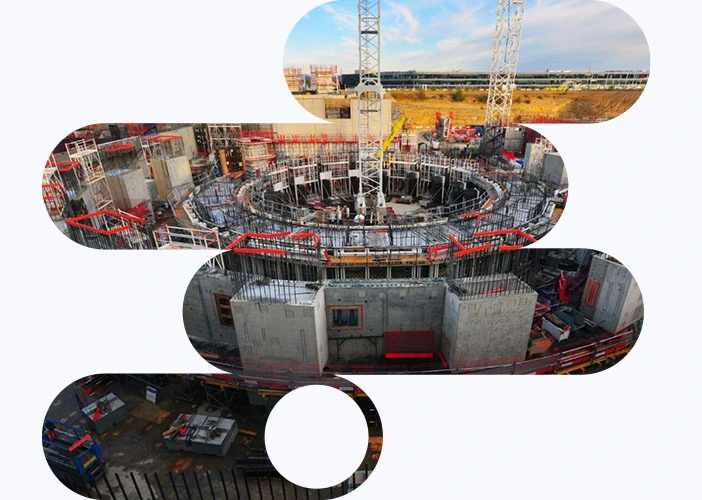Assystem Launches Fusion Energy Digital Twin PhD with The University of York
24 January 2024
Assystem has partnered with the University of York, a leading academic institution for plasma physics research, to launch a PhD (*) focused on researching the development of a digital twin for a complex component which is essential to produce fusion energy.
Investing in research is a vital step in the journey to realising the commercial viability of fusion, which is a strategic goal for the UK as it prepares to build a prototype fusion power plant that delivers net energy.
The digital twin will model the divertor, one of the most challenging components in a tokamak fusion reactor. The tokamak fusion reactor uses powerful magnets to control a super-heated plasma away from the surface of the machine, and extract heat from the fusion reactions. The divertor, a key component inside the tokamak, manages plasma contamination and protects the surrounding equipment from thermal and neutron damage.
The PhD will entail the development of a body of research which establishes how a range of physics domains interact with the design of the component, including plasma, thermal, mechanical, electrical and particle transport and capture.
The digital twin will incorporate these physical processes in a design environment and will also investigate how inputs from an operating fusion energy plant can be used to drive the model of the divertor, creating a true virtual copy which is connected to the operating plant.
The resulting Digital Twin will enable virtual ‘gauges’ to be present on the divertor, measuring, by calculation, key parameters that physically cannot be instrumented, such as irradiation damage, crack propagation and fatigue damage.
This investment is one of many made by Assystem in recent years to support the advancement fusion energy. Alongside its lead role on major engineering contracts at ITER and with experience on JET (Joint European Torus), Assystem is also committed to building support for a burgeoning UK fusion industry following its publication of its 2021 report Fusion Energy: A Global Effort – A UK Opportunity with the Institution of Mechanical Engineers.
Today, Assystem is coordinating a new Fusion Industry Taskforce to clearly define the needs of the UKs growing fusion supply chain to enable to UK to build a world -leading fusion industry.
(*) The PhD is part of the EPSRC Centre for Doctoral Training in Fusion Energy Science and Technology – the Fusion CDT, a collaboration between five world-class universities (Durham, Liverpool, Manchester, Oxford and York) working with a range of non-academic and industry partners to train four cohorts of PhD students. The 4-year PhD programme recruits about 20 students each year, focussing on plasma physics, materials science, advanced instrumentation and related technologies. After an initial period of taught courses in the first year to build essential fusion knowledge, students work on their research projects, sharing knowledge and experiences.
This research programme will help us to unlock the potential of one of the most complex components in a tokamak reactor. Digital twins are set to play a key role in bringing fusion energy to the fore, and we are delighted to be supporting this PhD in partnership with the University of York.
PODCAST: SWITCH ON BY ASSYSTEM
S2 - Episode 3 | Fusion power projects: How to go from R&D to commercial deployment?
In this episode, we take a look at a technology of the future that could transform the world’s electricity production by 2050: fusion power. The ultimate goal is to master the production of unlimited, safe, and commercially competitive renewable energy as part of a zero-carbon energy mix.

